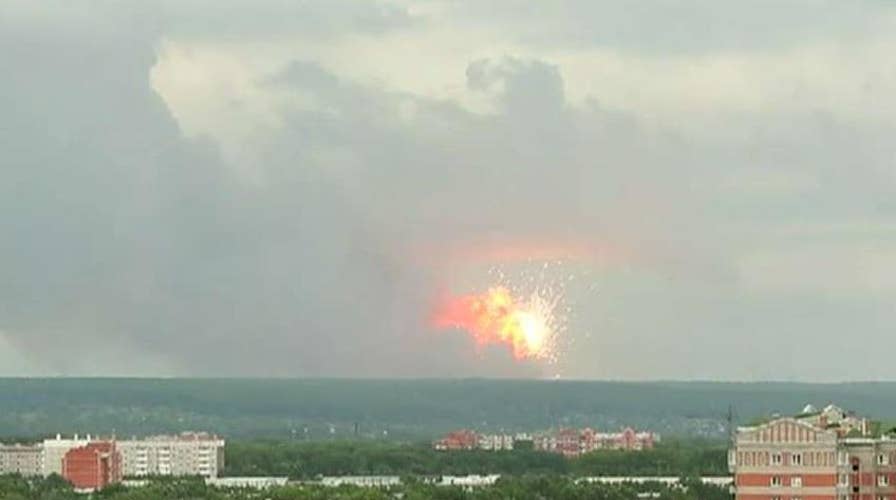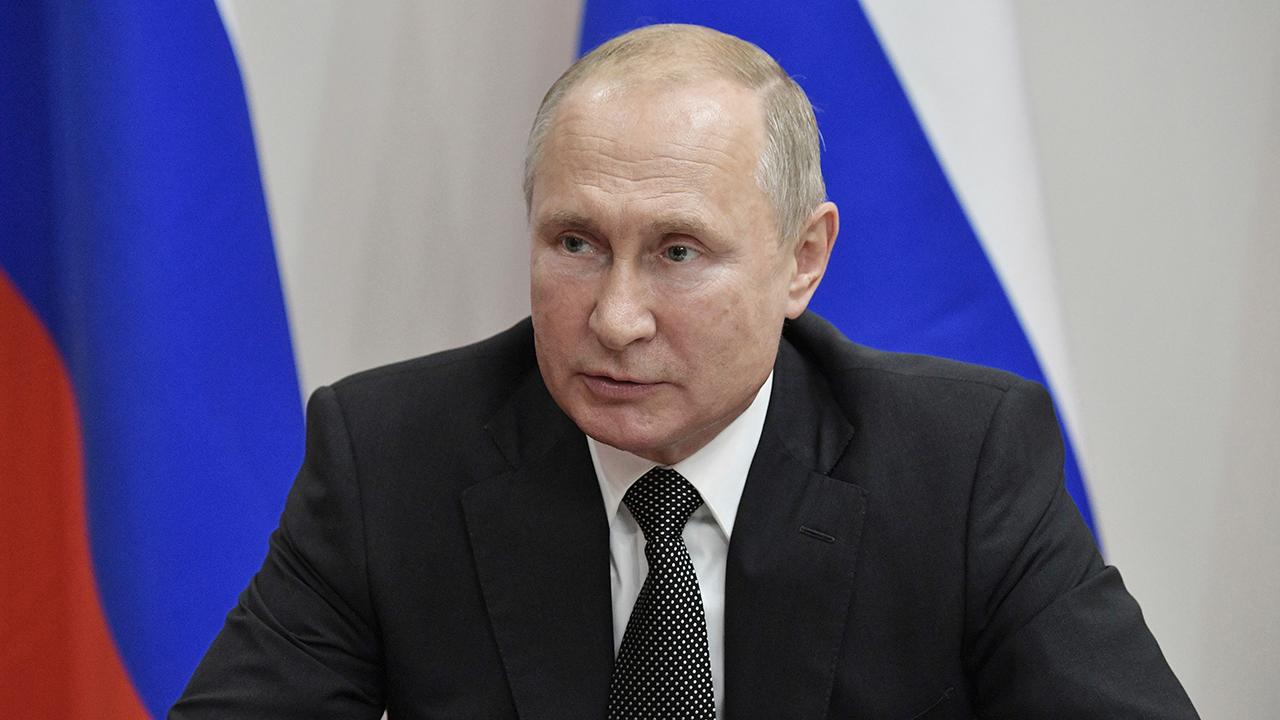Russia mysteriously cancels local evacuation order near site of deadly nuclear explosion
The Russian government is downplaying the deadly nuclear explosion suspected to be a failed missile test; Lucas Tomlinson reports.
A mysterious and deadly explosion earlier this month at a naval weapons testing range in northwestern Russia resulted in the deaths of two workers due to radiation sickness, not traumatic injuries, as officials had indicated, according to a report from an independent newspaper on Wednesday.
The blast on Aug. 8 took place at a military shooting range in Nyonoksa, in the far northern Arkhangelsk region. Russia's Defense Ministry initially said the blast killed two people and injured six, but the state-controlled nuclear agency, Rosatom, later disclosed that the explosion killed five of its workers and injured three others. Rosatom said the explosion occurred while engineers were testing "a nuclear isotope power source" for a rocket and were thrown into the sea by the explosion.
But on Wednesday, the independent newspaper Novaya Gazeta said two of the patients that were injured in the blast died from radiation sickness before they could be taken to Moscow for treatment.
“Two of the patients did not make it to the airport and died,” a person cited as an unnamed medical worker involved in their care told the paper. “The radiation dose was very high, and symptoms of radiation sickness grew every hour.”
RUSSIA RESUMES SHARING RADIATION DATA FOLLOWING MISSILE EXPLOSION, SAYS THEY'RE NOT OBLIGED TO DO SO
The news outlet also confirmed earlier reporting from the Moscow Times, another independent outlet, that health workers who treated those injured in the blast were not informed about potential radiation risk from handling the patients.
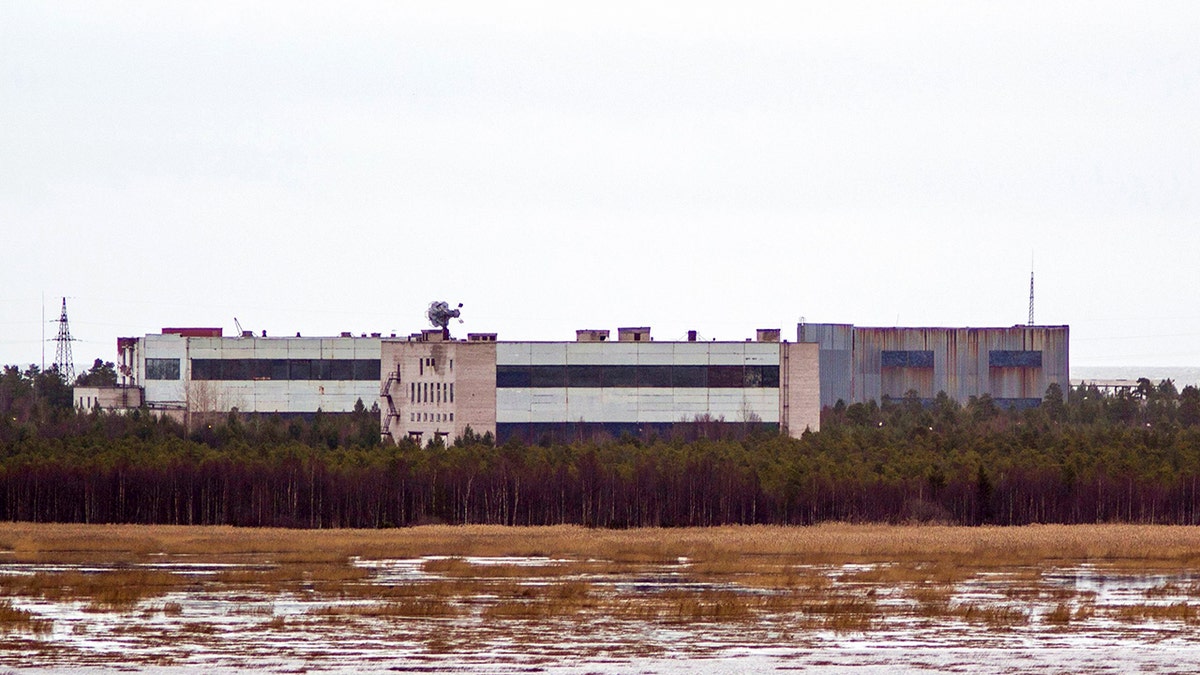
Buildings at a military base in the town of Nyonoska, Russia, the site of an accident during a test of a nuclear-powered engine where at least 7 people were killed on Thursday. (AFP/Getty Images)
Four male doctors and a medical worker at the Arkhangelsk Regional Clinical Hospital, located near Severodvinsk, told the Moscow Times the facility received three men around 4:30 p.m. the day of the accident who were naked and wrapped in translucent plastic bags. Health care staff at the time were only told there had been an explosion hours earlier at a military site, the Moscow Times reported Friday.
“No one -- neither hospital directors, nor Health Ministry officials, nor regional officials or the governor -- notified staff that the patients were radioactive,” one of the clinic’s surgeons said. “The hospital workers had their suspicions, but nobody told them to protect themselves.”
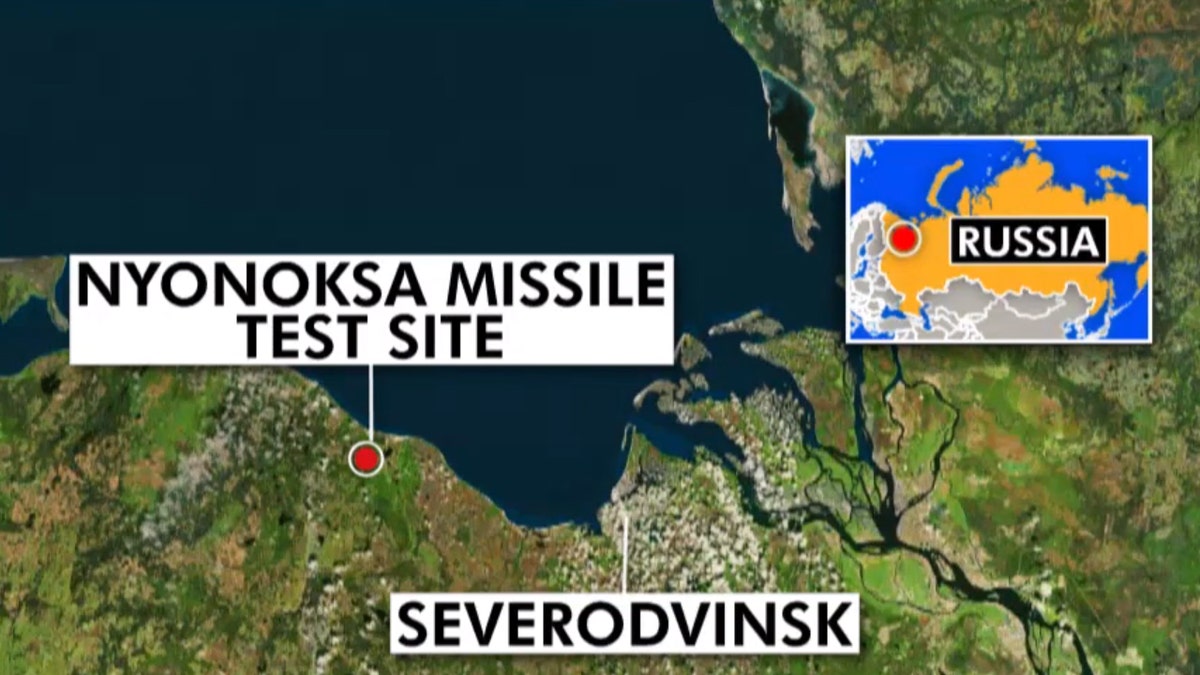
Russia's state weather agency, Rosgidromet, said last week that it believed radiation levels had risen by four to 16 times in the nearby port city of Severodvinsk after the accident (Bing/Fox News)
A hospital employee who spoke to Novaya Gazeta on the condition of anonymity said that traces of cesium 137 were detected in the emergency room area an hour after the patients were brought in, forcing the area to be decontaminated.
"Doctors and nurses used soap solutions for decontamination. The medical staff had only face masks to protect themselves," the employee told the news outlet.
RUSSIA NUCLEAR MONITORING SITES LOST CONTACT AFTER MYSTERY BLAST: REPORT
The online news site, Meduza, also quoted a rescue worker who said that people who were injured by the explosion were exposed to high levels of radiation and that medical teams who treated them lacked the necessary protective gear. It also cited a doctor who treated the patients as saying that the authorities hadn't warned them about the dangerous radiation levels.
Meduza said it did not publish their real names because of the sensitivity of the issue and the report did not mention radiation levels the patients and the doctors were exposed to.
The mysterious explosion was followed by a brief rise in radiation levels in nearby Severodvinsk, a city of 183,000, but the authorities insisted the recorded levels didn't pose any danger to local residents. Russia's state weather agency, Rosgidromet, said last week that it believed radiation levels had risen up to 16 times after the accident.
Russian officials' changing and contradictory accounts of the incident have drawn comparisons to Soviet attempts to cover up the 1986 explosion and fire at the Chernobyl nuclear power plant in Ukraine, the world's worst nuclear disaster.
The Russian Defense Ministry at first denied any radiation leak in the incident even as the authorities in nearby Severodvinsk reported a brief rise in radiation levels and advised residents to stay indoors and close the windows.
Earlier this week, the Comprehensive Nuclear Test Ban Treaty Organization said that several Russian radiation monitoring stations went silent shortly after the explosion in Nyonoksa. By Tuesday they were back in operation and backfilling the data.
CLICK HERE FOR THE FOX NEWS APP
Russian President Vladimir Putin insisted Wednesday the recent deadly explosion hasn't posed any radiation threat, but he remained coy about the circumstances of the mysterious incident.
Speaking after talks in Helsinki with Finnish President Sauli Niinisto, Putin emphasized that neighboring nations haven't recorded any spike in radioactivity.
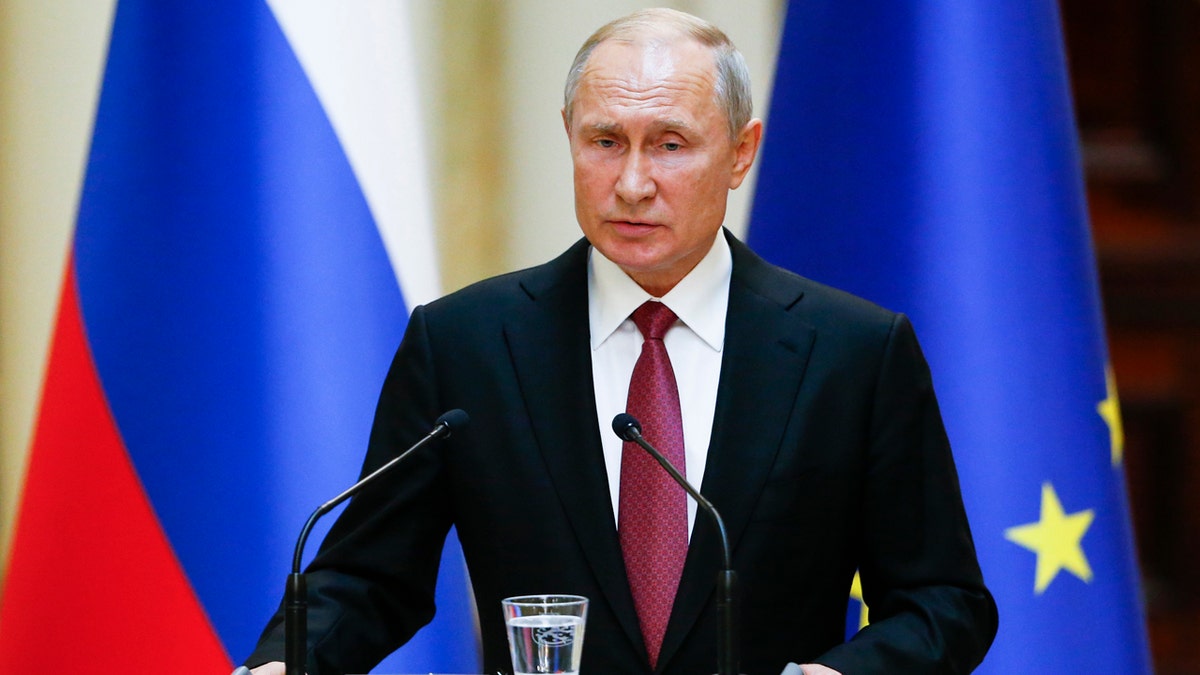
Russian President Vladimir Putin speak during a news conference after his meeting with President of the Republic of Finland Sauli Niinisto. (AP Photo/Alexander Zemlianichenko)
"These are the objective data," he said. "These things can be tracked."
Speaking in Helsinki, Putin hailed the victims, saying they were doing "very important work for the nation's security," but kept mum on what type of weapon they were testing.
Fox News' Edmund DeMarche and the Associated Press contributed to this report.








































